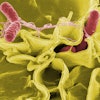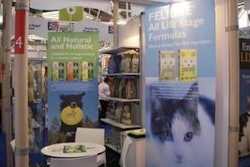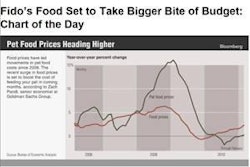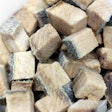British pets and other animals consume 10% of all palm kernel meal—a byproduct of palm oil—produced in the world, which may be contributing to the destruction of the rainforests where the oil is found.
The UK imported a total of 643,400 metric tons of palm oil and 663,300 metric tons of palm kernel meal in 2009, according to "Mapping and understanding the UK palm oil supply chain," a report completed for the Department of Environment, Food and Rural Affairs. Of the 663,300 metric tons of meal, 552,300 metric tons were imported for animal feed.
But while the UK has been increasingly turning to sustainable oil for its imports, sustainable palm kernel meal has not been a focus, something that has experts worried about the resulting environmental impact. "It's not just a by-product," said Defra official Sara Eppel, especially in Britain where "we import five times as much kernel from Indonesia as palm oil." According to Eppel, current government buying standards don't cover palm oil sustainability.
















